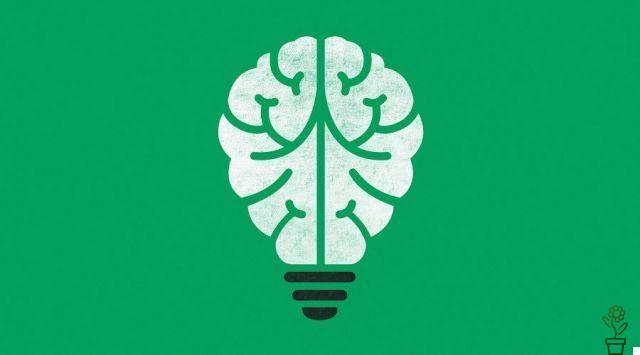
Sometimes we confuse and use the terms rationality and intelligence indiscriminately. We think that an intelligent person is also rational and every rational person is intelligent. It is not so. In fact, making rational decisions is not always better, even if it is difficult for us to recognize it since we live in an age in which rationality has been put on a pedestal by paying it all honors.
We consider emotions as the "enemy" that obscures our reasoning and pushes us to make bad decisions. We think that the simple fact that reason prevails guarantees us a good decision. However, we can make logical and rational decisions that, in the long run, are not the best for us. If we don't listen to our emotions, rational decisions can make us very unhappy. Being intelligent consists precisely in deciding with the heart and reason.
This dichotomy between emotions and intellect began with Descartes, who stated that only through reason can certain universal truths be discovered. His opposition to experience as a source of knowledge originated the rationalism that still prevails today, to the point that we idealize the rational person and criticize the emotional person.
Smarter people can make more irrational decisions
In the early 70s, psychologists from the universities of Stanford and British Columbia conducted a series of experiments in which they showed that everyone, even highly intelligent people, has a propensity for irrationality and for making decisions based on intuition rather than on intuition. reason
In one of these experiments they asked participants to read a passage describing the personality of a woman who was described as sincere, bright, with a degree in philosophy and concerned about issues such as discrimination and social justice. Then they asked them which of these two statements referring to this person was more likely: A) Linda is a cashier or B) Linda is an active cashier and feminist.
85% of people chose option B, although logically, A was the most likely option. Participants fell victim to the conjunction fallacy, a belief that we think two events are more likely to coincide than just one. But this is not the only mistake we fall into when making decisions. In fact, we tend to ignore information even when it does not match our expectations and beliefs, although it is relevant to problem solving, it is what is known as confirmation bias.
Subsequently, researchers at the University of Toronto also helped to clarify the relationship between intelligence and rationality. On that occasion they focused on the people making the most rational decisions, wondering what their secret was.
These psychologists found that, normally, the smartest people weren't always the most rational. In other words, a person with a high IQ is just as likely to make irrational decisions as someone with a low IQ. In fact, smarter people were even more likely to make irrational decisions.
These psychologists baptized this phenomenon "disrationality" and even went so far as to create a "rational coefficient" to differentiate it from the traditional "IQ".
Sometimes it's okay to be rational, other times it's better to be smart
Everything seems to indicate that the key lies in reflective thinking, in our ability to move away from prejudices and errors by analyzing the path of our thinking from a detached perspective that helps us make more rational decisions.
Some psychologists have defined this capacity for metacognition as “reasoning disposition”, understanding it as a cognitive flexibility to change one's opinion, open up to new ideas and seek new realities beyond preconceived ideas. At the laboratory level, it was discovered that the people who make the most rational decisions are precisely those who are most open to all possibilities because this allows them not to become tied to thoughts or beliefs related to the past.
However, we should not fall into the error of thinking that rationality always leads us to make the best decision. There are occasions when the most intelligent decisions are indicated by instinct, by those visceral sensations that we cannot always explain but which tell us which is the best path.
Being smart doesn't mean being rational, but being able to put all the information together and make the best decision. Intelligence is the ability to solve problems, but in many cases, to escape obstacles it is necessary to have a little divergent thinking, to get out of the predetermined paths of logic and to dare to take risks following intuition.


























